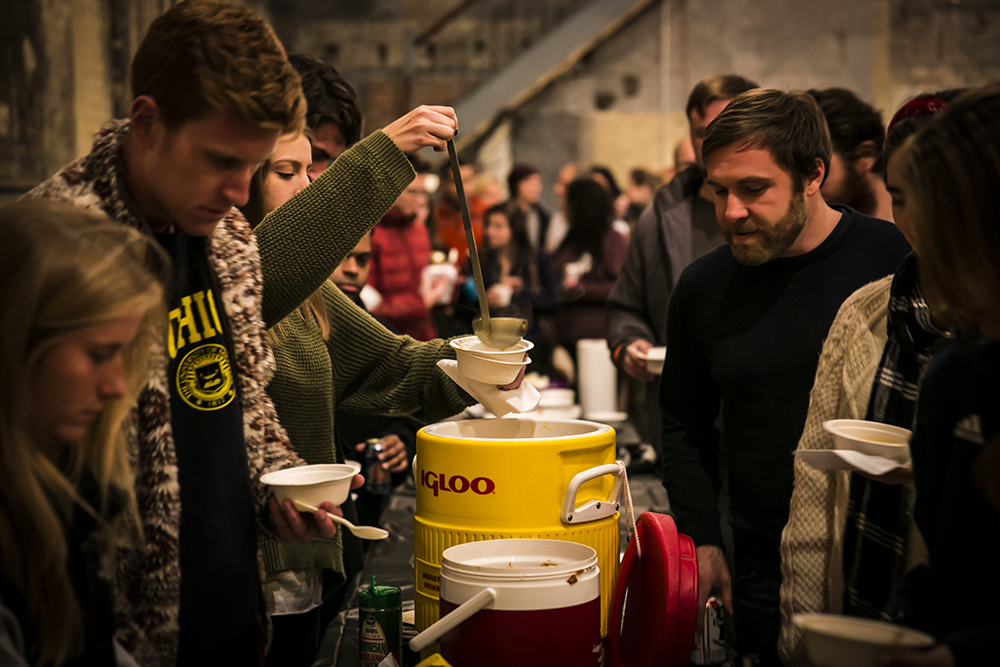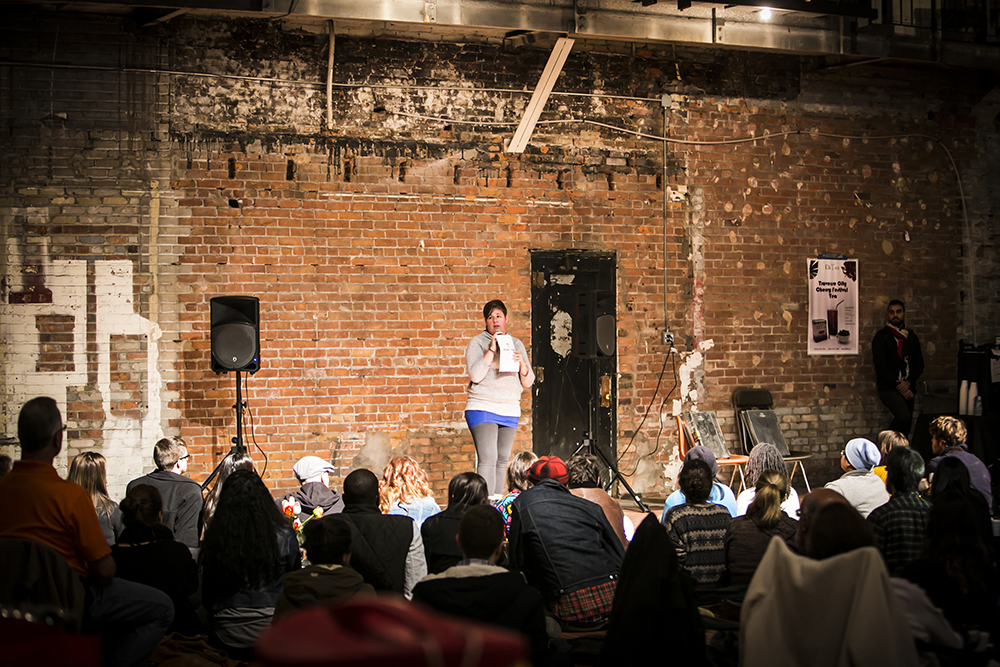“Soup and salad make it easier for people to gather and have a conversation from a shared experience. It’s a very human experience: eating together, sharing in storytelling, and sharing values and beliefs by just asking the question: ‘What project would you, as a citizen, vote for?’”—Amy Kaherl
Amy Kaherl: Director, Detroit SOUP / Detroit MI
detroitsoup.com
“soup and salad make it easier for people to gather and have a conversation from a shared experience. it’s a very human experience: eating together, sharing in storytelling, and sharing values and beliefs by just asking the question: ‘what project would you, as a citizen, vote for?’”—amy kaherl
How did Detroit SOUP start?
Detroit SOUP was founded in the Mexicantown neighborhood in 2010. Kate Daughdrill experienced the dinner in Chicago with InCUBATE, a research group dedicated to exploring new approaches to arts administration and funding, and originated the SOUP idea of collaboratively giving micro grants through a meal event. Kate approached Jessica Hernandez, whose family owned the Mexicantown Bakery, and they had a loft that was being used for storage. A group of us collaborated on an event just months before, so we continued working together to make the dinner happen. It started because the group wanted to collaborate on an idea that could empower and connect the community while exploring new art practices.
Detroit Soup November 2013
courtesy of detroit soup
How has Detroit SOUP grown?
Detroit SOUP is now a project of Cityscape Detroit, a 501(c)3, and has expanded to empower residents of various neighborhoods. Each neighborhood has a collective board that shares duties and responsibilities of gathering neighbors together to find new ways to make their neighborhood, and the city, better. We continue to provide a citywide SOUP that is held monthly, which brings new folks to share and collaborate together.
courtesy of detroit soup
Who participates in Detroit SOUP?
The application process is open to everyone who has an idea that can benefit the 138 square miles of city municipalities: Detroit, Highland Park, and Hamtramck. You don’t have to be a resident of the city to participate or attend the events.
courtesy of detroit soup
What are some notable examples of projects that benefited from the fundraiser?
In 2010, a college student wanted to design a coat that would turn into a sleeping bag for use by the homeless. She has hired women in shelters to make the coats, and she now employs about 20 people for the organization, The Empowerment Plan. The model inspired a couple of jewelry designers to hire women from shelters to make jewelry from graffiti paint chips that have fallen off walls. Their business is called Rebel Nell.
courtesy of detroit soup
We have SOUPs at the local levels as well. There is a poetry group that formed to present at the Livernois Corridor SOUP. Obsidian Blues Detroit uses art to transform, heal, and forge new ground. We create a space to use the arts as tools of exploration, a mirror to celebrate the power in our reflection.
How is this gathering integral to collaboration in the arts?
It is an important tool to collaborate, not just within the arts, but across all ideas that interact with social innovation. Each one of us has a small network of people that can help, inspire, or connect people with social or physical capital. It is amazing how it is turning into a new town hall gathering, where people can find a safe space to earn trust, and we see how people are thinking creatively about the work that is happening in the city.
courtesy of detroit soup
I believe that simple space and simple setups allow us to hear these concise ideas. The space does not need to look like a wedding reception. Expectations change when there isn’t a lot of glamour. You can hear the ideas, and you can see the people. Soup and salad make it easier for people to gather and have a conversation from a shared experience. It’s a very human experience: eating together, sharing in storytelling, and sharing values and beliefs by just asking the question: “What project would you, as a citizen, vote for?”
courtesy of detroit soup
What advice would you give to someone that wants to kickstart a collective?
Don’t try it alone. Don’t do it monthly, unless you can raise funds to work on it part-time. Don’t assign a lot of rules to the project. SOUP has two: the ideas have to be specific to Detroit and no technology is used to present. Keep it open to everyone. It must never be about the leaders. Find ways to connect deeply with community partners.
courtesy of detroit soup







